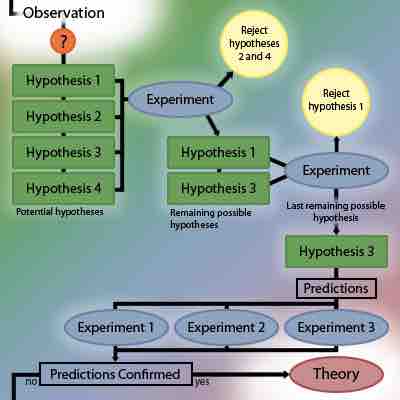There is a reciprocal relationship between theory and practice in sociology. In practice, sociologists use an empirical approach that seeks to understand what is going on in the social world and how it happens. These practices, however, cannot stand on their own without underlying theoretical questions (the why) that guide the research. Without theory, interesting data may be gathered without any way to explain the relationships between different observed phenomena. Sociologists go back and forth between theory and practice as advances in one require modification of the other.
Theory and Practice Explained
Practice refers to the actual observation, operation, or experiment. Practice is the observation of disparate concepts (or a phenomenon) that needs explanation. A theory is a proposed explanation of the relationship between two or more concepts, or an explanation for how/why a phenomenon occurs.
Grounded Theory Method
Sociologists often work from an already existing theory, and seek to test that theory in new situations. In these cases, theory influences the practice of empirical research – it shapes what kinds of data will be gathered and how this data will be interpreted. This data may confirm the theory, lead to modifications of it, or disprove the theory altogether in that particular context. These changes to the theory then lead to further research.
When working from theory, sociological observation runs the risk of being directed by that theory. For example, if one is working from the perspective of a Marxist conflict theory, one might tend to interpret everything as a manifestation of bourgeoisie domination, from the patterns of seating at a school cafeteria to presidential election results.
A response to this problem was developed by two sociologists, Barney Glaser and Anselm Strauss, called grounded theory method; it is a systematic methodology in the social sciences involving the discovery of theory through the analysis of data. Grounded theory method is mainly used in qualitative research, but is also applicable to quantitative data.
Grounded theory method operates almost in a reverse fashion from traditional research, and at first sight may appear to be in contradiction to the scientific method. Rather than beginning with a hypothesis, the first step is data collection through a variety of methods. Using the collected data, the key points are marked with a series of codes, which are extracted from the text. The codes are grouped into similar concepts in order to make them more workable. From these concepts, categories are formed, which are the basis for the creation of a theory, or a reverse engineered hypothesis. This contradicts the traditional model of research, where the researcher chooses a theoretical framework and only then applies this model to the phenomenon to be studied.

Scientific Method: Practice and Theory
Social scientists begin with an observation (a practice), then they develop a hypothesis (or theory), and then, devise an empirical study to test their hypothesis.